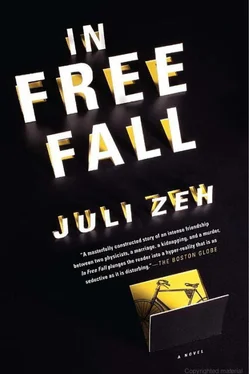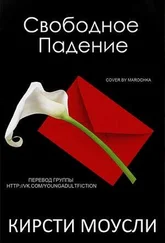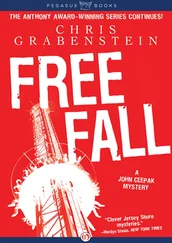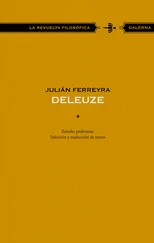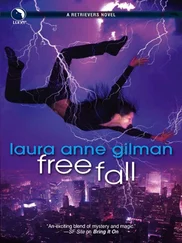“So it’s four now!” exclaims the father, whose fat neck bulges over his collar. He slaps his newspaper with the back of his hand. “See! Four people have died now! Bled to death during surgery. The medical director continues to deny it.”
“Four little Negro boys,” a childish voice sings, “on the river Rhine.”
“Quiet,” the mother says, and she stops the song midflow with a piece of apple.
“‘Is the pharmaceutical industry behind the experiments on patients?’” the father reads. He shoves out his lips crudely as he drinks from his bottle of beer.
“Criminals, the lot of them,” the mother says.
“Ought to be locked up.”
“If only.”
Oskar puts Der Spiegel back into his bag and hopes that Sebastian will not smell salami on his clothes when they greet each other. He strides out of the carriage and almost stumbles when the train jerks into motion. Send all the stupid people to war, he thinks, as he leans against the wall next to the toilets. Let them burn to a crisp in some African desert or in an Asian jungle, it really doesn’t matter. Another fifty years of peace and the people in this country will have regressed to the level of apes.
Outside, the first well-tended front gardens of the Freiburg suburbs have appeared.
“SUMMER IN FREIBURG IS JUST WONDERFUL.”
Oskar is standing by the open window behind a half-drawn curtain, cradling a glass of wine and breathing in the scent of the wisteria that he had admired from the street when he got out of the taxi. He is wearing a dark sweater despite the heat, but he looks fresh as a daisy, as though sweating is not something of which he is capable. He hears the parquet creak behind him, and turns his head.
Sebastian is walking across the large dining room, arms dangling by his sides, deliberately relaxed, quite the opposite of his friend. His hair is as startlingly fair as Oskar’s is dark. While Oskar always looks as if he is attending a formal celebration of some kind, Sebastian has something boyish about him. His movements have a playful openness about them, and though he dresses well—today in a white shirt and linen trousers—he always looks as if he has slightly outgrown his shirtsleeves and trouser legs. On him, growing older seems to be a mistake, and age has merely deepened his laugh lines.
He walks right up to Oskar and places a hand that he knows is warm and dry upon Oskar’s neck. Sebastian closes his eyes for a moment as the smell of his friend sweeps over him like a memory. The calm way they stand so close together indicates habit.
“I’m going to murder someone in four days,” says Sebastian, “but I don’t know anything about it yet.”
Sebastian could have said that without telling a lie. Instead he says, “Summer in Freiburg is as beautiful as those who appreciate it.” His words strike a false note—they betray his uneasiness rather than conceal it. Sebastian’s hand slides off Oskar and falls into emptiness as his friend steps smoothly to one side. Below them, outside, Bonnie and Clyde have reached the start of the street. They turn and float past the house like flotsam and jetsam.
“Let’s get to the point,” Oskar says, his eyes resting on the ducks in the canal. “I read your outpourings in Der Spiegel .”
“I take it you’re congratulating me.”
“It’s a declaration of war, cher ami .”
“My God, Oskar.” Sebastian shoves one hand into his pocket and passes his other over his face. “The sun is shining and the birds are singing. It’s not a matter of life and death. It’s about a theory of physics.”
“Even a harmless theory like the earth being round cost a lot of people their lives.”
“If Copernicus had had a friend like you,” Sebastian replies, “the earth would still be flat.”
The corner of Oskar’s mouth twitches. He takes out a crumpled pack of cigarettes and waits until Sebastian, who doesn’t smoke, has found some matches and given him a light.
“And if Copernicus had believed in the Many-Worlds Interpretation,” Oskar retorts, the cigarette between his lips jerking as he speaks, “mankind would have been wiped out by idiocy.”
Sebastian sighs. It isn’t easy arguing with someone who is part of the greatest intellectual endeavor of the new millennium. Oskar’s goal is to unite quantum physics with the general theory of relativity. He wants to bring E = hν together with G αβ= 8πT αβand thus make two views of the universe into one. One question and one answer. A single equation that describes everything. He is not alone in searching for a theory of everything. There are hordes of physicists working on it, all competing with each other, knowing that the winner not only will receive the Nobel Prize, but will also follow in the footsteps of Einstein, Planck, and Heisenberg in gaining a piece of immortality. The winner’s name will forever be associated with a certain epoch—the age of quantum gravity. Oskar’s chances of winning are not at all bad.
Sebastian’s focus, to put it carefully, lies elsewhere. He is an experimental physicist in nanotechnology at the University of Freiburg and is regarded as brilliant in his field. But from Oskar’s point of view, Sebastian is a mere bricklayer and it is theoretical physicists who are the architects. Sebastian is not engaged in fighting for immortality. His free time is taken up by the Many-Worlds Interpretation—whose very name, from Oskar’s point of view, reveals that it is not a theory but a hobbyhorse. Sebastian is grazing in an empty field. The great physicists left it behind some fifty years ago. In Oskar’s eyes, it is now of esoteric interest only, or for show-offs. A dead end.
Sebastian knows that Oskar is basically right. Sometimes he feels like a child who stubbornly persists in trying to make a lightbulb out of a preserving jar and a piece of wire despite his parents’ objections. But in front of his less gifted colleagues, in front of his students, and, most of the time, to himself, he claims to be looking for a new approach to questions of time and space. An approach that would leave the Many-Worlds Interpretation behind. Ultimately it doesn’t matter whether Sebastian still believes in it or not, for he has no choice but to continue on the path he has carved out. Even if he were to take it upon himself to join the race Oskar is in, he would never be able to make up for the ten years he had lost. The final push to find the theory of everything had begun once the existence of W and Z bosons had been successfully proved in experiments. Oskar and Sebastian had been in their twenties then, the age at which people have the best ideas of their lives, the age at which Oskar had his only idea. Oskar had devoted himself to his theory of discrete time, behaving like an obsessive lover. Hour after hour, week after week—for ten years he had pursued it, regardless of whether it would eventually yield to him. Sebastian had not wanted anything to do with it. At an appropriate juncture, he had turned his attention to other things—not only to another theory, but, above all, to another life.
THE MAN WHO HAD THE DUBIOUS HONOR of presiding over this turning point in Sebastian’s life was called Little Red Riding Hood. He had earned the nickname because of the bald pate, glowing red from wine, that emerged through his threadbare fringe of hair. He always wore a shabby corduroy jacket, the shoulders of which were covered with a white layer of dandruff. Unlike many of his colleagues, Little Red Riding Hood was adored by his students. And while he took them seriously, and stimulated their intelligence with complicated assignments, the affection was not mutual. Little Red Riding Hood especially disliked students who challenged what he said.
Читать дальше
